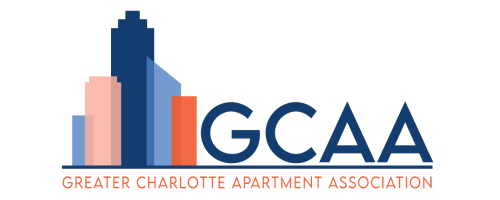Flexibility, Compassion Urged For Landlords Whose Tenants Have Lost Jobs Amid Coronavirus Fears
GCAA's Executive Director, Kim Graham, spoke with WFAE's Lisa Worf about the challenges facing renters and property owners as the first of the month arrives.
By LISA WORF, WFAE
It's the first of the month and that means rent is due for many people who may have lost their jobs due to business closures aimed at slowing the spread of the coronavirus. Kim Graham is the head of the Greater Charlotte Apartment Association, a group whose members include owners and property managers of more than 165,000 apartments throughout the region. She joined WFAE's Morning Edition host Lisa Worf.
Lisa Worf: So at a time when so many people have lost their incomes overnight and may not have money for rent, what are you advising landlords to do?
Kim Graham: Well, the National Apartment Association and the National Multifamily Housing Council gave local apartment associates and affiliates pretty good guidance a few weeks ago and really just advocated compassion. And so we mimic that.
And we've reached out to owners, given them some tools to speak with and be proactive about reaching out to their residents around income losses associated with COVID-19 or even if they're feeling sick, just recognizing that we're all in this together. That this is a global boat that we're all rowing in. What you should not do is send a blanket letter to your residents saying, "Remember, rent is due at the first of the month, no matter what."
Worf: Have you heard that happening in a lot of cases?
Graham: I haven't heard a lot of cases of that, and I certainly haven't heard that in cases of our members. I have heard anecdotally that some residents have received those letters from their property management company.
Worf: The idea then is landlords reach out to their tenants and check on them. But then as far as giving the tenants allowances, what have you been advising in that regard and what are you seeing?
Graham: Well, first, we're saying if you have the ability to be flexible, then be flexible. Because that's what I suspect they would want from their mortgage companies. In the case where they have debt service and many, most do. I would say also if there are ways to defer either late fees or rent, rolling it into the back of the lease or dividing the payment up six or 12 months -- it really will depend on the financial wherewithal of the particular apartment community. So that it's really doing what's going to work best for your community. Understanding that the stability of that community really does manage the stability of all the families that live there.
Worf: Do you have a read on how many landlords are able to offer this flexibility right now?
Graham: There's honestly no way to know. We could survey our members right now, but they're working day and night. They're still onsite because they're essential workers. They're still having to respond to maintenance requests. And right now, with more people staying at home, the idea is that those maintenance requests are probably higher because the asset is being used more.
I get the sense that our members are doing as much as they possibly can to be flexible and to fund workarounds, because the reality is that evictions are very expensive to do and they don't feel good.
Worf: From a landlord's perspective, what do you advise tenants to do if they can't make the rent?
Graham: To reach out to the property management company or to the owner of their rental and be proactive. To provide documentation because documentation is going to be helpful. If they've lost their job or been furloughed, if either file unemployment or seek immediate reemployment. But absolutely reach out to your property owners so that you both can work to figure out what will work.
Worf: And how much flexibility do landlords have paying their own bills?
Graham: So for those multifamily owners -- and there are tons of them -- but for those who own Fannie Mae- and Freddie Mac-backed mortgage properties, they've obviously been able to leverage the federal request for forbearances and the request to roll those benefits on to the residents. And so for them, they have that safety net.
But for the many who have traditional mortgages, there is still some uncertainty about what their flexibility is in terms of payment for their debt service -- and just like rental residents have rent that's due the first of the month. Those multifamily owners have mortgage payments that are due to their mortgage companies and investors the first of the month, and that debt service doesn't go away. And so we hope that there's going to be some federal assistance with lightening the load for them so that they're not scared and concerned about whether or not they'll be able to meet their debt service. Because that can be catastrophic for the multifamily industry.
So, some have more flexibility than others. We know that across the country that there are some operational assets that might have reserves more than others, but there are many who, because of their variable and fixed costs, just don't have the ability to float a lot of rent payments that don't come in the first of the month.
Worf: Thanks, Miss Graham.
Graham: You're welcome, Lisa. Thank you for having me.
Worf: That's Kim Graham, the executive director of the Greater Charlotte Apartment Association. And there are a limited amount of rental subsidies available through groups such as Socialserve, the Salvation Army of Greater Charlotte, the Men's Shelter and Charlotte Family Housing.
